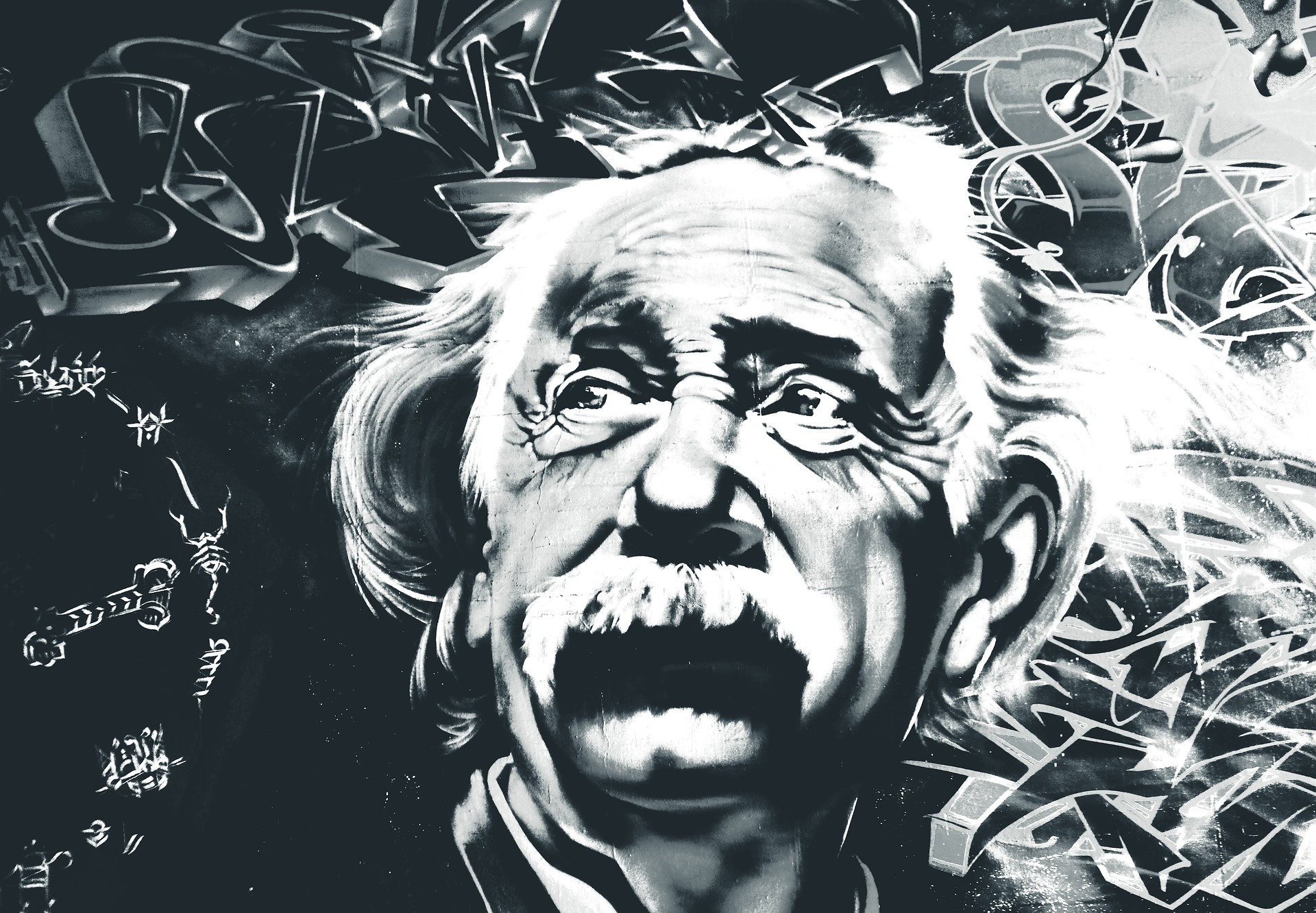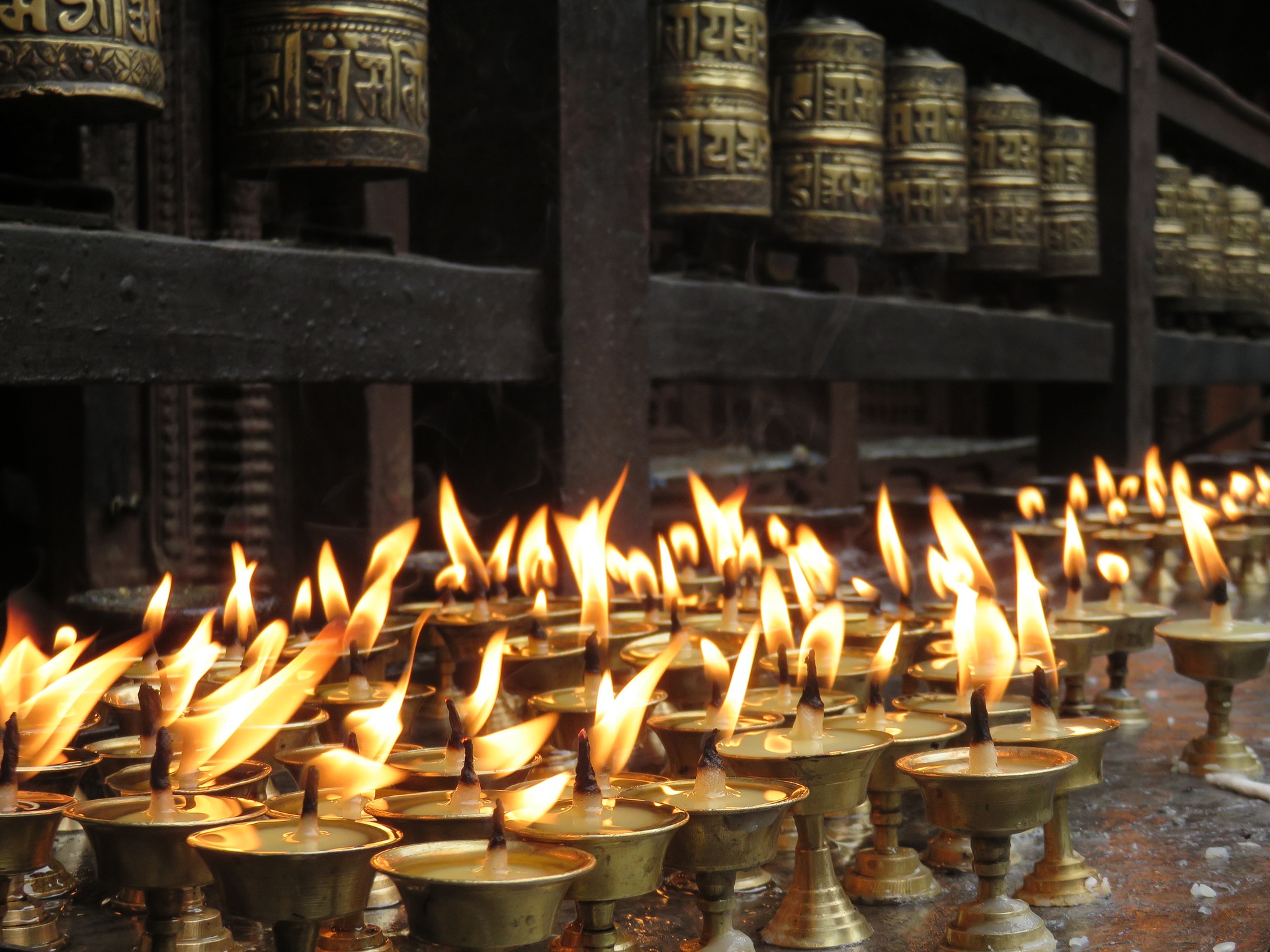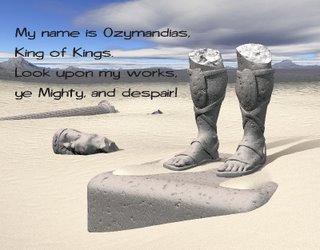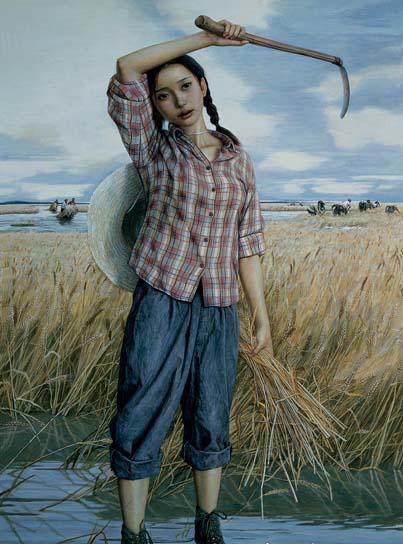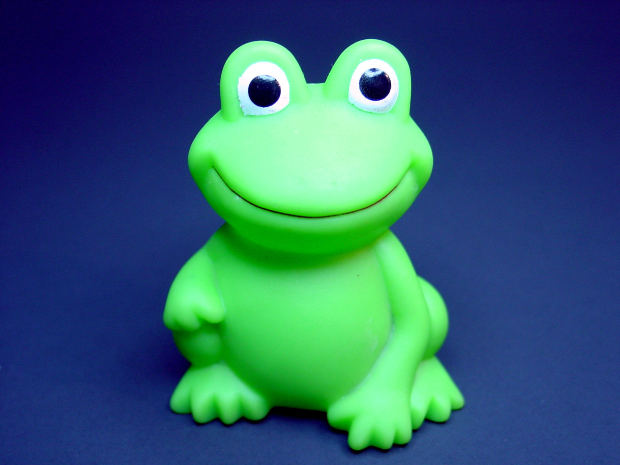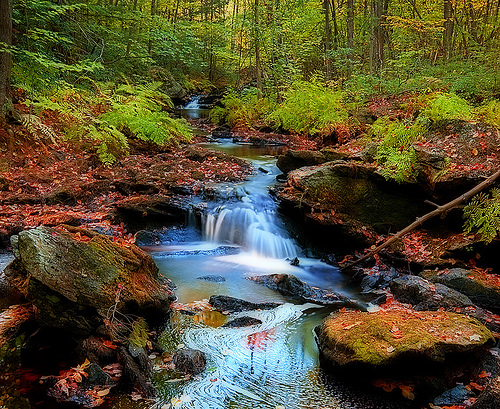About the Poet: Born in a small mining town in England on 11th September 1885, D.H. Lawrence is regarded as one of the most influential writers of the 20th century. Lawrence published many novels and poetry volumes in his lifetime, including Sons and Lovers and Women in Love, but is best known for his infamous novel Lady Chatterley’s Lover. The graphic and highly sexual novel was published in Italy in 1928, but was banned in the United States until 1959 and in England until 1960. Lawrence died in France on 2nd March 1930.
Reviled as a crude and pornographic writer for much of the latter part of his life, D.H. Lawrence is now widely considered as one of the great modernist English-language writers along with Joyce and Woolf. His linguistic precision, mastery of a wide range of subject matters and genres, psychological complexity and exploration of female sexuality distinguish him as one of the most refined and revolutionary English writers of his time. Lawrence himself considered his writings to be an attempt to challenge and expose what he saw as the constrictive and oppressive cultural norms of modern Western culture.
About the Poem: This poem was probably written by Lawrence in 1920 in Sicily. It was published in 1923 as part of his collection of poetry entitled Birds, Beasts, and Flowers.
Setting of the Poem Snake: This poem is set in the poet’s backyard, where there is a water-trough. When the poet goes to the trough to fill a pitcher with water for his own use, he encounters a snake which has come to the trough before him. The entire poem revolves around this very encounter.
Line by Line Summary of Snake by D.H.Lawrance
The poem consists of 19 stanzas of variable lengths. The entire poem consists of 75 lines in total.
1st stanza:
| A snake came to my water-trough |
| On a hot, hot day, and I in pyjamas for the heat, |
| To drink there.
In this stanza, the poet describes how it was a typical summer day and how he had been wearing pyjamas in order to cool himself. Again in order to keep cool, he had gone to fetch water from his trough, but found that a snake had reached before him. |
2nd stanza:
| In the deep, strange-scented shade of the great dark carob tree |
| I came down the steps with my pitcher |
| And must wait, must stand and wait, for there he was at the trough before me. |
In this stanza, the poet describes how the trough was kept in the shade of a large carob tree and how that entire place had a strange smell. When he poet reached with his pitcher, he has to stand and wait for the snake to finish drinking.
3rd stanza:
| He reached down from a fissure in the earth-wall in the gloom |
| And trailed his yellow-brown slackness soft-bellied down, over the edge of the stone trough |
| And rested his throat upon the stone bottom, |
| And where the water had dripped from the tap, in a small clearness, |
| He sipped with his straight mouth, |
| Softly drank through his straight gums, into his slack long body, |
| Silently. |
In this stanza, the poet describes how the snake came out of a crack in the wall of his house and how it slithered leisurely over the edge of the trough and finally came to rest with its throat on the bottom of the stone trough. Water had fallen in drops from the tap forming a small and transparent pool, from which the snake drank silently and the poet could imagine the water travelling through its long flexible body.
4th stanza:
| Someone was before me at my water-trough, |
| And I, like a second-comer, waiting. |
In this stanza, the poet says that generally he was the only one to drink out of his trough, but that particular day, he himself was second to reach the trough and he had to wait as a result.
5th stanza:
| He lifted his head from his drinking, as cattle do, |
| And looked at me vaguely, as drinking cattle do, |
| And flickered his two-forked tongue from his lips, and mused a moment, |
| And stooped and drank a little more, |
| Being earth-brown, earth-golden from the burning bowels of the earth |
| On the day of Sicilian July, with Etna smoking. |
In this stanza, the poet describes how the snake stopped drinking at one point and looked at him, in the same way that cattle drinking in ponds sometimes pause between sips. Then the snake moved its forked tongue quickly from side to side, thought for a bit and continued to drink again. The poet imagines this snake to be Typhon, the mythical and monstrous serpent that was descended from Gaia and that was finally defeated by Zeus by throwing Mount Etna on it, but that still spews up fire and boulders when the volcano erupts.
6th stanza:
| The voice of my education said to me |
| He must be killed, |
| For in Sicily the black, black snakes are innocent, the gold are venomous. |
In this stanza, the poet says that while he was in Sicily, he had learnt that black snakes will not harm you, but that golden ones are poisonous. So his education told him to kill the golden snake that had come to his trough.
7th stanza:
| And voices in me said, if you were a man |
| You would take a stick and break him now, and finish him off. |
In this stanza, the poet hears voices in his head goading him on to kill the snake with a stick, for that would prove his masculinity.
8th stanza:
| But must I confess how I liked him, |
| How glad I was he had come like a guest in quiet, to drink at my water-trough |
| And depart peaceful, pacified, and thankless, |
| Into the burning bowels of this earth? |
In this stanza, the poet says that he quite liked the snake and was happy that it had come to drink at his trough like a guest and then to leave as peacefully as he had come to go back to the depths of the earth from which he imagines it had risen.
9th stanza:
| Was it cowardice, that I dared not kill him? |
| Was it perversity, that I longed to talk to him? |
| Was it humility, to feel so honoured? |
| I felt so honoured. |
In this stanza, the poet wonders what it was that had stopped him from killing the snake – whether it was because he was a coward, or because he has some unnatural affinity with the snake. In the end he concludes that it was because he felt honoured to have been visited by the snake.
10th stanza:
| And yet those voices : |
| If you were not afraid, you would kill him! |
In this stanza, the poet again hears voices telling him to conquer his fear and kill the snake.
11th stanza:
| And truly I was afraid, I was most afraid, |
| But even so, honoured still more |
| That he should seek my hospitality |
| From out the dark door of the secret earth. |
In this stanza, the poet confesses that he was very scared of the snake, but more than that, he was honoured the snake had chosen to come only to the poet’s trough while making its journey out of the earth’s crust.
12th stanza:
| He drank enough |
| And lifted his head, dreamily, as one who has drunken, |
| And flickered his tongue like a forked night on the air, so black, |
| Seeming to lick his lips, |
| And looked around like a god, unseeing, into the air, |
| And slowly turned his head, |
| And slowly, very slowly, as if thrice adream, |
| Proceeded to draw his slow length curving round |
| And climb again the broken bank of my wall-face. |
In this stanza, the poet describes how once the snake had finished drinking, it lifted its head slowly and made quick movements of its tongue as if it were licking its lips in satisfaction that its thirst had been quenched. It then looked around as if it were lord over all the land and slowly turned its head and then its body to begin its ascent over the crack in the wall from which it had come.
13th stanza:
| And as he put his head into that dreadful hole, |
| And as he slowly drew up, snake-easing his shoulders, and entered farther, |
| A sort of horror, a sort of protest against his withdrawing into that horrid black hole, |
| Deliberately going into the blackness, and slowly drawing himself after, |
| Overcame me now his back was turned. |
In this stanza, the poet describes what he did when he saw the snake putting its head into the crack of the wall and slowly slithered the rest of its body in after that. The poet protested against its leaving and going back into the blackness of the hole.
14th stanza:
| I looked round, I put down my pitcher, |
| I picked up a clumsy log |
| And threw it at the water-trough with a clatter. |
In this stanza, how the poet put down his pitcher, picked up some wood and threw it at the trough in a desperate attempt to stop the snake from leaving.
15th stanza:
| I think it did not hit him, |
| But suddenly that part of him that was left behind convulsed in undignified haste, |
| Writhed like lightning, and was gone |
| Into the black hole, the earth-lipped fissure in the wall-front, |
| At which, in the intense still noon, I stared with fascination. |
In this stanza, the poet says that he thought the log had not hit the snake, but he was wrong. As a result, the snake speeded up its motion and disappeared into the hole in the wall in a flash like lightning. As the sun was beating down mercilessly, the poet kept looking at the crack in the wall in awe.
16th stanza:
| And immediately I regretted it. |
| I thought how paltry, how vulgar, what a mean act! |
| I despised myself and the voices of my accursed human education. |
In this stanza, the poet describes how he was filled with regret that he had acted in such a cruel and petty way with the snake. He hated himself and the education that had urged him to act in such a manner.
17th stanza:
| And I thought of the albatross, |
| And I wished he would come back, my snake. |
In this stanza, the poet says that he felt like the ancient mariner (from Coleridge’s poem of the same name) who had killed the albatross for no reason and he wished that the snake would come back to the trough once again.
Suggested Reading:
Snake Poem Solved Question and Answers
18th stanza:
| For he seemed to me again like a king, |
| Like a king in exile, uncrowned in the underworld, |
| Now due to be crowned again.
In this stanza, the poet says that the snake should have been a king. Though his place was beneath the surface of the earth, it had not been crowned there. However, the poet thinks it would be crowned shortly. |
19th stanza:
| And so, I missed my chance with one of the lords |
| Of life. |
| And I have something to expiate : |
| A pettiness. |
In this stanza, the poet says that he missed the chance to welcome a lord of life into his home and he must apologize for his petty behaviour in the matter.
Suggested Reading: Summary of Snake by D.H.Lawrance in Hindi
Keywords: snake poem summary (2.0), snake summary (2.0), summary of snake class 10 (1.9), summary of snake (2.2),snake class summary (1.8),snake poem (3.1), snake summary class 10 (1.9), snake by D.H. Lawrence (1.7), snake D.H. Lawrence (2.3), the snake poem (4.0), summary of poem snake (1.5), the snake summary (1.7), snake class 10 (4.2), snake by D.H. Lawrence summary (1.5), the snake emily dickinson (1.3), the snake emily dickinson (2.4), summary of the snake class 10 (1.5), summary of the poem snake (1.9), the snake poem summary (2.0), summary of the poem snake class 10 cbse (1.1), snake poem summary line by line (2.7), summary of chapter snake (1.3), summary of snake poem (1.4), summary of chapter snake class 10 (1.3), snake cbse class 10 summry (1.7), short summary of snake class 10 (1.2), poem snake class 10 (3.5), class 10 english poem snake summary (1.4), snake poem summary shmoop (1.1), cbsc class 10 english snake summary (1.6), the snake dh lawrence (3.4), snake short summary (4.1)
Some online learning platforms provide certifications, while others are designed to simply grow your skills in your personal and professional life. Including Masterclass and Coursera, here are our recommendations for the best online learning platforms you can sign up for today.
The 7 Best Online Learning Platforms of 2022
- Best Overall: Coursera
- Best for Niche Topics: Udemy
- Best for Creative Fields: Skillshare
- Best for Celebrity Lessons: MasterClass
- Best for STEM: EdX
- Best for Career Building: Udacity
- Best for Data Learning: Pluralsight
